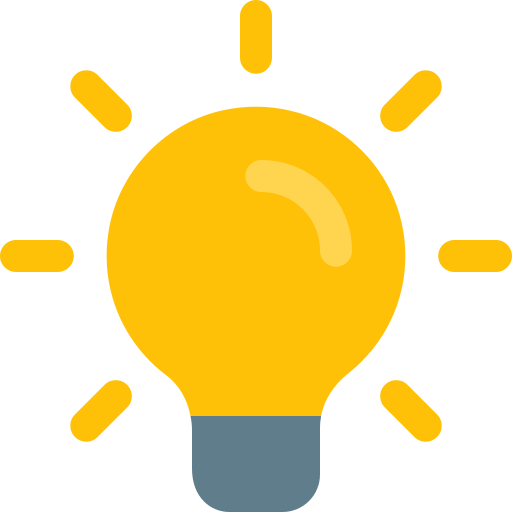Intelligence! We all have More than one
Find out the multiple intelligences of your child

Understanding Multiple Intelligences: What Makes us Multi-Talented
The concept of Multiple Intelligences (MI) was introduced by Dr. Howard Gardner in 1983. It revolutionized the way we think about intelligence, shifting the focus from a narrow definition based on IQ tests to a broader, more inclusive understanding.
Gardner's theory suggests that there are several types of intelligences, each representing different ways people process information and learn. In this blog, we will explore the theory of Multiple Intelligences, its different types, and how this knowledge can be applied to enhance education, personal development, and professional growth.
What Are Multiple Intelligences?
Multiple Intelligences refer to a range of cognitive abilities that people possess.
According to Gardner, intelligence is not a single, unified ability but a spectrum of diverse capabilities. These intelligences reflect the varied ways humans engage with the world and solve problems.
Gardner identified eight distinct intelligences, each corresponding to specific domains of human activity and thought.
1. Linguistic Intelligence (Word Smart)
2. Logical-Mathematical Intelligence (Number/Reasoning Smart)
3. Spatial Intelligence (Picture Smart)
4. Bodily-Kinesthetic Intelligence (Body Smart)
5. Musical Intelligence (Music Smart)
6. Interpersonal Intelligence (People Smart)
7. Intrapersonal Intelligence (Self Smart)
8. Naturalistic Intelligence (Nature Smart)
Each type of intelligence is valuable, and understanding them can help individuals recognize their strengths and weaknesses.
The 8 Types of Multiple Intelligences
1. Linguistic Intelligence:
Word Smart People with strong linguistic intelligence excel at reading, writing, and verbal communication. They are often skilled storytellers, writers, and orators. This intelligence involves the ability to use language effectively and persuasively.
Characteristics:
✅ Strong vocabulary and grammar skills
✅ Good at learning languages
✅ Enjoys reading, writing, and storytelling
Learning Tips:
Engage in activities like journaling or debating
Read diverse genres to expand vocabulary
Practice writing essays or short stories
2. Logical-Mathematical Intelligence:
Number/Reasoning Smart- Logical-mathematical intelligence refers to the ability to think logically, reason abstractly, and solve mathematical problems. People with this intelligence tend to excel in subjects like mathematics, science, and logic puzzles.
Characteristics:
✅ Strong problem-solving and analytical skills
✅ Good with patterns and sequences
✅ Enjoys working with numbers and theories
Learning Tips:
Solve puzzles or brainteasers to enhance critical thinking
Engage in activities like coding or math gamesFocus on subjects that involve logical reasoning, such as physics or mathematics
3. Spatial Intelligence:
Picture Smart- Spatial intelligence involves the ability to visualize and manipulate objects or ideas mentally. People with strong spatial intelligence are often good at navigating spaces, creating art, or understanding diagrams and maps.
Characteristics:
✅ Skilled at drawing, painting, or sculpting
✅ Good at reading maps or following directions
✅ Easily able to visualize 3D objects
Learning Tips:
Practice drawing or building models
Use visual aids like charts and diagrams to enhance learning
Play games like puzzles or chess to improve spatial reasoning
4. Bodily-Kinesthetic Intelligence:
Body Smart- Individuals with bodily-kinesthetic intelligence have a high level of physical coordination. They excel in activities that require body movement, such as sports, dance, or hands-on tasks. This intelligence is about using one’s body to express ideas and solve problems.
Characteristics:
✅ Good at sports, dance, or physical tasks
✅ Enjoys working with hands (e.g., building, crafting)Easily memorizes actions or body movements
Learning Tips:
Engage in activities like dancing, sports, or hands-on projects
Use role-play or physical activities to reinforce learning
Practice fine motor skills through crafting or building
5. Musical Intelligence:
Music Smart- Musical intelligence refers to the ability to perceive, distinguish, and create musical patterns. People with high musical intelligence are often sensitive to rhythm, melody, and tone. They may have a natural ear for music or be adept at playing instruments.
Characteristics:
✅ Enjoys listening to, creating, or performing musicGood at recognizing pitch, rhythm, or melody
✅ Often finds themselves humming or tapping to beats
Learning Tips:
✅ Play a musical instrument or learn to read music
✅ Listen to different genres of music to understand various patterns
✅ Engage in singing or rhythmic exercises
6. Interpersonal Intelligence:
People Smart- Interpersonal intelligence is the ability to understand and relate to others. Individuals with high interpersonal intelligence are skilled at reading social cues, empathizing with others, and working collaboratively in groups.
Characteristics-
✅ Good at teamwork and leadership
✅ Easily understands and responds to others' emotions
✅ Enjoys socializing and communicating with people
Learning Tips:
✅ Engage in group discussions or collaborative activities
✅ Practice active listening and empathy
✅ Volunteer for leadership roles or team projects
7. Intrapersonal Intelligence:
Self Smart- Intrapersonal intelligence involves a deep understanding of oneself. People with this intelligence are highly self-aware and are able to reflect on their emotions, thoughts, and actions. They often have clear goals and can manage their personal growth effectively.
Characteristics:
✅ Self-reflective and introspective
✅ Good at setting personal goals and managing emotions
✅ Often enjoys solitary activities like journaling or meditation
Learning Tips:
✅ Keep a journal to track personal progress
✅ Set clear goals and reflect on past experiences
✅ Engage in mindfulness practices or meditation
8. Naturalistic Intelligence:
Nature Smart- Naturalistic intelligence refers to the ability to recognize patterns in nature and interact effectively with the natural world. People with this intelligence have a strong connection to the environment and excel in activities related to nature, such as farming, gardening, or biology.
Characteristics:
✅ Enjoys spending time outdoors
✅ Good at identifying plants, animals, and natural patterns
✅ Has a strong environmental awareness
Learning Tips:
✅ Spend time hiking, gardening, or studying the natural world
✅ Observe and document patterns in nature
✅ Engage in environmental causes or conservation efforts
How Parents Can Use the Theory of Multiple Intelligences to Help Their Children Perform Better
Success Tips for Parents
Intelligence is NOT one-size-fits-all approach. As parents, understanding the unique ways your child learns can make a significant difference in their academic and personal growth. Different intelligences represent different strengths and learning styles. By recognizing these intelligences, parents can tailor their approach to support their child’s strengths and help them overcome challenges.
1. Identify Your Child's Strengths:
Start by observing your child’s natural preferences and talents. Does your child love to read and tell stories? They may have strong linguistic intelligence. Are they good at solving puzzles or math problems? That points to logical-mathematical intelligence. Once you identify their dominant intelligences, you can nurture those areas by providing opportunities to further develop those skills.
2. Provide Diverse Learning Opportunities:
Expose your child to activities that engage different intelligences. For example, if your child excels in musical intelligence, encourage them to play an instrument or explore rhythm games. For those with bodily-kinesthetic intelligence, hands-on activities like building models or playing sports can help them excel.
3. Use Tailored Learning Strategies:
When helping with homework or studying, consider the learning style. For a child with interpersonal intelligence, studying in groups or discussing ideas with peers might work better. For children with intrapersonal intelligence, quiet reflection or journaling might be more effective. By using the framework of Multiple Intelligences, parents can create a more personalized and supportive learning environment, ultimately helping their children perform better both in school and in life.
CORE STRENGTHS
15
Years Experience
15000+
Students Helped
99%
Accuracy
Transform Your Child's Life With Us

Discover their Genius Zone
We help you find out the latent but innate potential of your child.
We discover your child's:
➡️ Personality Type
➡️ Learning Style
➡️ Multiple Intelligences
➡️ Thinking Type
➡️ Right Brain vs Left Brain
and hence, Their Genius Zone

One-on-One Parents Counselling Sessions
Once you discover the genius of your child, you need to understand what to do with that potential!
In our counselling sessions, we discover, discuss and train you into dealing with your child in the most effective way.
The purpose? To help them shine!

Career Guidance for Children
With the Genius Zone identified, what next?
Peer pressure can lead to poor career decisions.
In our sessions with children, we guide them into the best career options for them basis their Personality, Intelligence and Potential.